#difang
Text
A Jianghu Mystery of the Middle Xi: The Tomb of Li Xiangyi
By Qiling, University of □□ (2024)

Left: A photograph of the inscribed text at Li Xiangyi's tomb, reading, "The grave of the Sigu Sect's departed Sect Leader, Li Xiangyi". Right: Artist's sketch renditions from eye-level frontal and aerial side views, recreating how the tomb may have appeared during the Xi dynasty.
Among the numerous important archaeological finds from the Xi Dynasty, the tomb of Li Xiangyi is not the most well-known, nor has it yielded any artifacts of particular intrigue, yet it has raised questions about certain points in history since its discovery. The tomb constitutes a small site, near a mountainous overlook which should have received little common traffic at the time of construction. Its structure is in line with some other aristocratic burials of the Middle Xi period: aboveground, with a chamber at the center of a raised rectangular dais several meters wide, large enough to bear only a single individual. A stone marker, which has survived in legible condition until today, declares it the tomb of Li Xiangyi, leader of the Sigu jianghu sect.
Records about Li Xiangyi are found at other archaeological sites contemporary with this tomb, and so his name is not an obscure one. The Sigu Sect complex has already undergone excavation for nearly two decades, with evidence that Li Xiangyi spent several years there as its first sect leader and founder. His tomb is within two hours' walking distance of the Sigu site, though isolated in its location, compared to the Sigu Sect's grand mountain entrance. (The complex itself was inhabited well after his death; bamboo slips cite Qiao Wanmian as the Sigu Sect's next major leader some years after, who oversaw it for several more decades into the later Xi). In addition, the Baichuan-Pudu site, closer to the eastern coast and historically the headquarters for the Baichuan Court, is affiliated with Li Xiangyi. Its origins apparently began as an offshoot of the Sigu Sect, which grew into its own independent legal organization after his death.
Legends surrounding Li Xiangyi's life have been well-documented, both at Sigu and Baichuan-Pudu, but also in books and transcriptions of oral stories at sites around the country. These are dated to both the Middle and Late Xi periods, as well as a few scattered mentions in writings from the following dynasty. As a jianghu sect leader and swordsman, Li Xiangyi's reputation truly preceded him. Some tales speak of his early accomplishments, ridding towns of villainous tyrants and defeating criminals. Others talk about the founding of the Sigu Sect when Li Xiangyi was seventeen, and his subsequent missions leading his fellow swordsmen to protect the borders of the country. Not all of these narratives can be verified with surviving historical proof, and given Li Xiangyi's status in the shifting canon of folklore, the percentage that are hyperbole or fiction is likely significant. However, one that is true, and is the most frequently told story throughout these sources, is that of Li Xiangyi's death.
All texts place Li Xiangyi as having died relatively young, with some providing a specified age, generally around twenty. He perished in a duel with Di Feisheng, leader of the Jinyuan Alliance, a rival jianghu organization and presumed threat to the Sigu Sect. As the sources say, the Jinyuan Alliance killed Li Xiangyi's sect brother, Shan Gudao, and in retaliation he used the Sigu Sect to launch a war against the Jinyuan Alliance. His final battle was the last in this war, dying in the East Sea on Di Feisheng's ship. The Jinyuan Alliance in return was badly defeated by the Sigu Sect; excavations at its first compound in the last five years have shown evidence of siege, with fire having destroyed large parts of the buildings. Afterward, the Sigu Sect disbanded without Li Xiangyi, with only the Baichuan Court continuing to function, before being resurrected one decade later.
Given this knowledge we have about Li Xiangyi, the matter of his burial should be straightforward. He had a tremendous impact on the jianghu in the few short years that he stood at its peak. He died heroically, if tragically, to obtain justice for a brother. He was honoured with a tomb, standing guard over the sect he dedicated his youth to. Why, then, is said tomb regarded as somewhat of a mystery?
This tomb was first stumbled upon during extended surveys of the Sigu site territory, with excavation taking place within the last two years. Parts of the stone chamber and foundation of the dais have withstood time, as have most things left inside. The tomb bears no signs of looting. However, there are some details which, alongside discoveries from other archaeological sites, contribute to a shadow of uncertainty on the existing narrative of Li Xiangyi's life.
Firstly, is that the austerity of the tomb does not line up with what we know of Li Xiangyi. Although overall sufficient enough for someone of his great reputation, the tomb is rather plainly embellished. There are an unexpectedly small number of burial objects inside, with those present being neither rare nor expensive. For all his contributions to the jianghu, less money and resources were poured into remembrance of Li Xiangyi than seems proper for his time.
Secondly, and far more significantly, is that the tomb holds no human remains. Whether the fact of Li Xiangyi having no recovered body to bury was made public is unknown; if it was, we do not have record of it. Certainly those who arranged for the tomb to be built and sealed would have carried this with them the rest of their lives, but no one else may be accounted for. Granted, it is not impossible for a disappeared body to have been common knowledge or presumption, as Li Xiangyi was killed at sea with no guarantee of being found. Yet this, combined with the ordinary appearance of the tomb, causes the entire site to appear... a nominal thing. Constructed to maintain acknowledgement of Li Xiangyi's absence, though his death was only marked by words, rather than a physical state.
He was given a tomb, but was Li Xiangyi truly dead before it was built?
In terms of the aforementioned other archaeological site findings, there is one that potentially implicates Li Xiangyi's death at an interesting political junction, within the context of the dynasty. The Xi Dynasty was unstable and relatively short-lived, established after taking back the Central Plains and adjacent territories from the southern conquering state of Nanyin. It endured for just under two centuries, the first of which was fraught with pockets of conflict, with many jianghu skirmishes such as that between the Sigu Sect and the Jinyuan Alliance. The greatest threat to the Xi Dynasty (until its fall) came one hundred years after its founding. Recovered archival records from the Xi capital excavation report that remaining Nanyin loyalists attempted a coup, supported by jianghu organizations including a restored Jinyuan Alliance (although whether Di Feisheng was still its leader at this time is unclear). This attack was ultimately unsuccessful, but important to note is that the leader of this renewed Nanyin force is described as being Shan Gudao, Li Xiangyi's former sect brother.
Although Li Xiangyi brought the Sigu Sect into a war upon news of Shan Gudao's death, that demise seems to have been faked, with Shan Gudao disappearing underground only to reappear as part of a later rebellion. Could Li Xiangyi have been aware of this? Was his reaction to Shan Gudao's apparent death genuine? Or part of a coordinated plan, using him as a reason to destroy the Jinyuan Alliance to eradicate any future resistance? Did Li Xiangyi, too, fake his death alongside Shan Gudao, in service of a shared cause? Were remnants of the Sigu Sect instructed to build an empty tomb, cementing Li Xiangyi as a dead hero so he could work in the shadows of the jianghu instead?
This is merely speculation, contradicted by the fact that if Li Xiangyi had indeed done as such, unlike Shan Gudao, after his duel with Di Feisheng he has no reappearance in any surviving records or at any archaeological site. As well, Li Xiangyi should have had no motivation for committing to such a scheme, with even loyalty to Shan Gudao a stretch to putting all the lives of the Sigu Sect on the line. That being said, history has a way of surprising the present, and this theory may not be entirely ruled out. At any rate, Shan Gudao's survival is a baffling accompaniment to Li Xiangyi's (lack of a) burial, one which will hopefully receive clarifying answers in future archaeological developments.
Perhaps the strangest piece of the puzzle concerning the end of Li Xiangyi's life, however, is Di Feisheng. After the Jinyuan Alliance was scattered by the Sigu Sect, stories regarding Li Xiangyi declared him dead and disappeared. Yet not unlike Shan Gudao, he became known in the jianghu once more about ten years later, witnessing the Nanyin attempted coup and living long after. His tomb remained intact, and was excavated eight years ago as part of the greater Tianji Mountain site project. The location of Di Feisheng's tomb is surprising, not only because it directly links him to the powerful and wealthy He clan of Tianji Manor, but also because he was buried beside their sole young master during the Xi Dynasty, Fang Duobing.
The son of financial minister Fang Zeshi and engineering master He Xiaohui, Fang Duobing became a notable youxia travelling the jianghu in the emperor's name, assigned in the wake of the attempted Nanyin coup. According to palace records, he was also betrothed to the Princess Zhaoling, although the marriage agreement was eventually formally dissolved. What is otherwise known of Fang Duobing was his admiration of Li Xiangyi, having styled himself as a follower and disciple of him during his youth. As well, one eye-catching artifact among Fang Duobing's burial goods was a preserved wooden replica of a blade, with Li Xiangyi's name carved near the hilt. Likely a children's toy, prized and kept safe throughout Fang Duobing's life.
The exact nature of the relationship between Di Feisheng and Fang Duobing is not entirely certain, but it must have been a very close one, for Di Feisheng to have the privilege of burial on the Tianji estate. This topic justifies future study for our understanding of the Tianji He clan, already known in prior generations for its socially subversive relationships, but pertinent to Li Xiangyi is that the man whose most infamous act was to kill him, was laid to rest next to one who revered him. Why was there such a bond between these two figures, if the stories of Li Xiangyi's death have had any truth to them? Did Li Xiangyi really die by Di Feisheng's blade? Did Li Xiangyi's empty tomb, plausibly signifying Di Feisheng's innocence, alter his relationship with Fang Duobing? Or indeed, did Li Xiangyi, the man himself, have a part to play in this?
No traces of him from this time remain in the archaeological record, true. But this should not be taken to mean without doubt that he was not alive then at all.
The discovery of Li Xiangyi's tomb has been an exciting development for studying this era of the Xi Dynasty, but it has also outlined doubt in areas of one man's life that were previously taken as likely facts. Li Xiangyi's tomb is scarcely fitting for his name as a founding sect leader, built more for the sake of its existence than anything else, and there was no body sealed inside to begin with. In addition, Shan Gudao— someone dear to Li Xiangyi— established a precedent of faking his death. Di Feisheng, known across the jianghu for killing the man, held a close bond with someone later in life who had personally looked up to Li Xiangyi, and so he may not have been fully responsible for Li Xiangyi's death to begin with.
What truly happened to Li Xiangyi, resulting in a tomb such as this? The past holds the answer, knowing things that we do not. Hopefully the future of archaeology will continue leading to new discoveries, and allow us to more completely understand the legend that was Li Xiangyi.
#this is probably a better archaeological research paper than the one i wrote on sanxingdui a few days ago#anyways hi yes. i just impulse wrote a fake archaeological paper for fun. enrichment. whatever#also i tried not to sound too pop culture archaeology in this#to any other anthropology or archaeology majors. if it comes off that way i am sorry </3 it's past 4am rn#mysterious lotus casebook#li xiangyi#di feisheng#fang duobing#ashton writes fic#difang#<- to any difang shippers just sit with me for a bit and think about these two being buried together
15 notes
·
View notes
Text

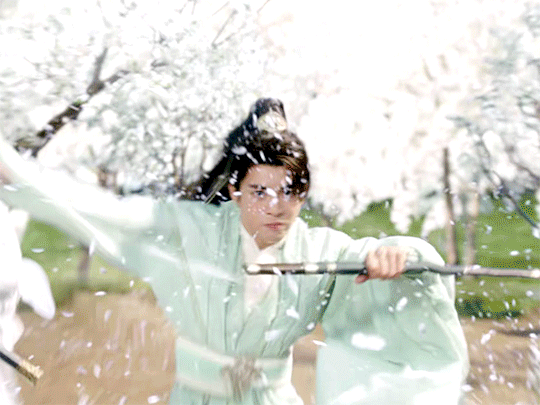
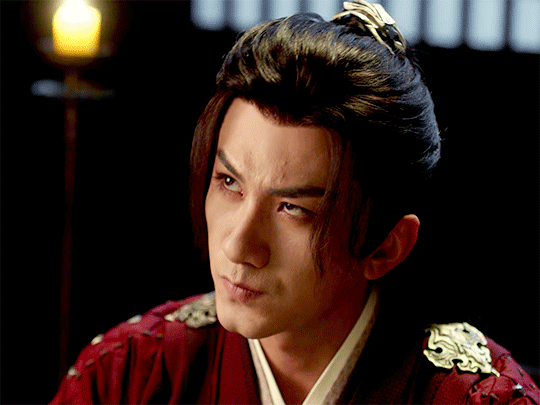

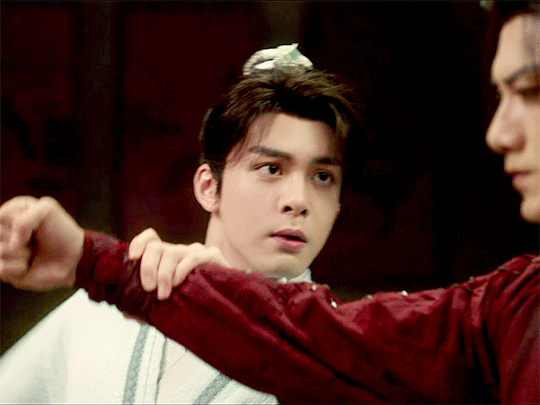

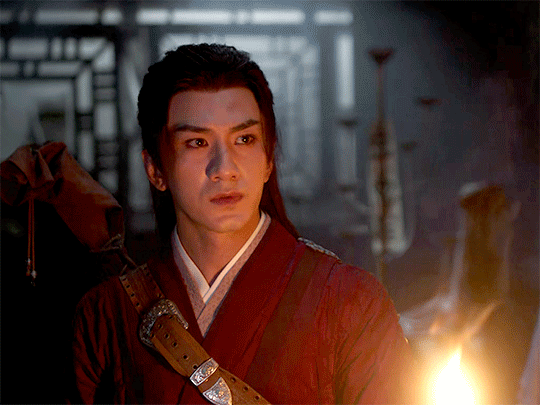
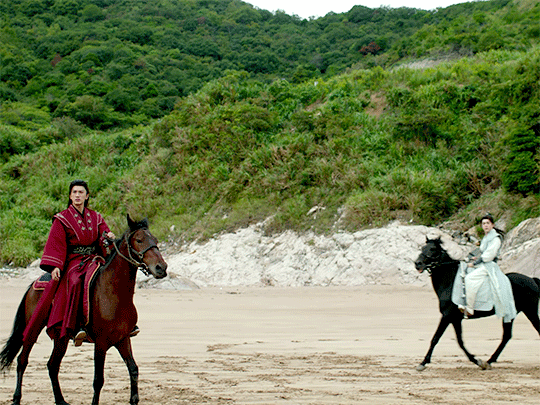
我还道方兄与李兄乃是至交,没想到和阿飞兄也是如此默契。
DI FEISHENG and FANG DUOBING | 莲花楼 Mysterious Lotus Casebook
#莲花楼#mysterious lotus casebook#asiandramanet#dailyasiandramas#asiandramasource#cdramagifs#cdramanet#cdrama#difang#xiao shun yao#joseph zeng#lhlgifs#jielin's edits#my posts#hello difang nation. my humble contribution#FINALLY. A WHOLE NEW WORLD HAS BEEN OPENED WITH 2160P SOFT SUBS#WHO WAS I WHAT WAS MY LIFE BEFORE IT. i'm not crying over my dihua sets (lying and crying)#one thing about me is i guess i am defenceless against 不高兴和没头脑 a dynamic so old but gold#two men brought together by their common love for another man. 有本土狗爱的味道#阿飞撞飞小狗ヽ(*≧ω≦)ノ#我是举笛花大旗的 不过老笛和小狗在一起的时候的那个宠溺感 请看看他对小宝稍微挑眉的那幕😔👌 (有时对花也是 所以我很想相信老笛本质上是个温柔的人#其实老笛原本不屑和小宝打架的可是就被他的节奏代跑了 才有了狼狗和奶狗xxj式的掐架#然后小宝放下成见 想要感化老笛 逐渐到会想要保护照顾他 信任他让他做自己#是个双向成长的感情#真的太香了 你说能不嗑吗😔👌#如果说花花把老笛困在了过去 那小宝是最有可能把他带到未来的人#老笛昏过去了花花都不去接相信小宝会接的👍 小狗看起来就是要给人宠的花花就让笛盟主接手👍#笛方的本质是笛方花 可以独自美丽但是永远离不开花 花花对他们的爱的延续是他们之间的爱#(我已经语无伦次了ojbk 我现在很需要笛方的代餐饿到要昏过去了55555#finding a really good caption for these two was hard.
491 notes
·
View notes
Text
Is anyone else sad because Fang Duobing has a "Waiting For Li Lianhua On the Beach" outfit?
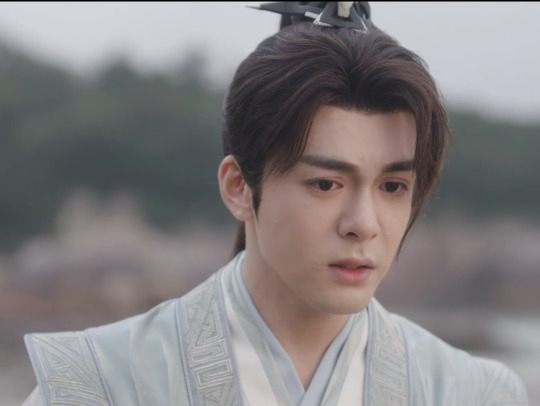

(On the left is the outfit in episode 40 after reading Li Lianhua's letter. On the right is the outfit in the special episode when he and Di Feisheng show up on the donghai beach to look for him 3 months later.)
While we're on the subject of costumes, @the-surreptitious-albatross and I just realized how different this outfit of Fang Duobing's is from his earlier outfits.
Here are some examples of a normal FDB outfit:
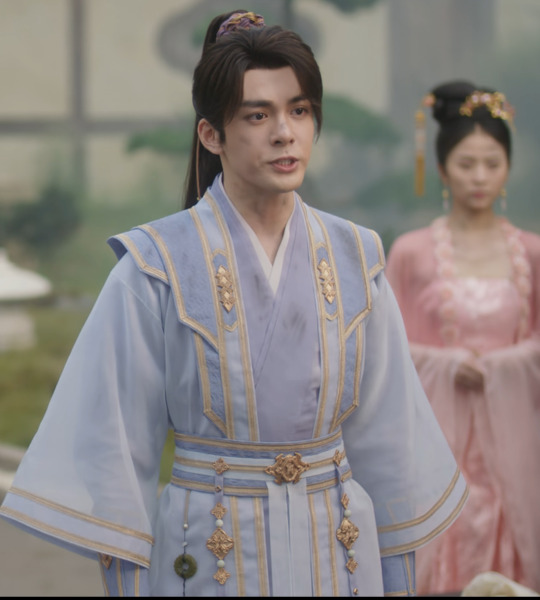
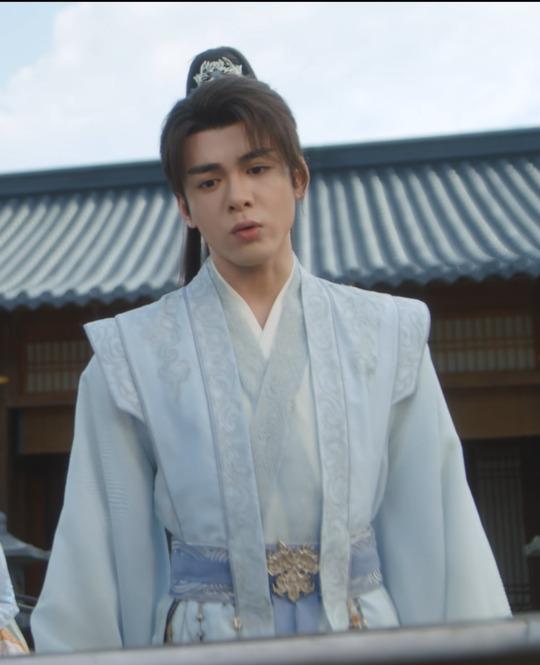
He prefers pastels, and his belts and wrist guards are often the same color as the pastel or a slightly darker version (and here, they have gold decorations).
Zooming in shows that he prefers his embroidery designs to be swirly and his hair accessories to be braided and color-matched or elaborate and silver (but still on the delicate side).

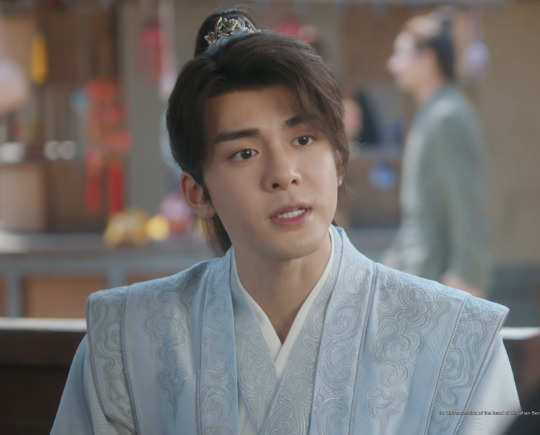
But check out this outfit: the embroidery is more angular and less swirly, as is the hair piece, and it and the belt and wrist guards are black with silver instead of matching the pastel of his outfit or being a slightly darker shade of it.


You know whose style he's echoing with all these changes? Who else tends to favor black wrist guards and belts with more angular designs?
Di Feisheng.
The images below make it a bit clearer: DFS's belt has gold decorations compared FDB's silver, and the shape is different, but you can see the similarities in the wrist guard design in particular.


It's not obvious how much their costumes are tying them together in this scene because we don't ever see them in the same frame; the camera constantly keeps them apart, as does the blocking of the scene, since DFS is on the rocks and FDB is on the beach.
That changes in the special episode when they both arrive on the beach at the same time, and DFS is wear his sect leader robes.

Here they are, in the same frame at last, and side by side, and you can see even more clearly with this DFS outfit how much the style of FDB's belt, wrist guards, and hair accessory is echoing his. The wrist guard pattern looks almost the same in these pictures! And the cut of the outer sleeveless robe is also very similar, which visually pairs them even more.
All this to say, FDB's clothing style shifts, the gentle swirls sharpened into points by his worry and grief for Li Lianhua, and it breaks my heart.
But the fact that he's visually echoing Di Feisheng now, that they're slowly becoming a matched set, is starting to put the pieces back together again.
#mysterious lotus casebook#mlc meta#Fang Duobing#Di Feisheng#Li Lianhua#costume meta#lhl#I really meant to write more of my fic today#and instead this happened#thanks the-surreptitious-albatross!#Difang#difanghua
198 notes
·
View notes
Text
This is how I imagine Fang Xiaobao a few years after canon.
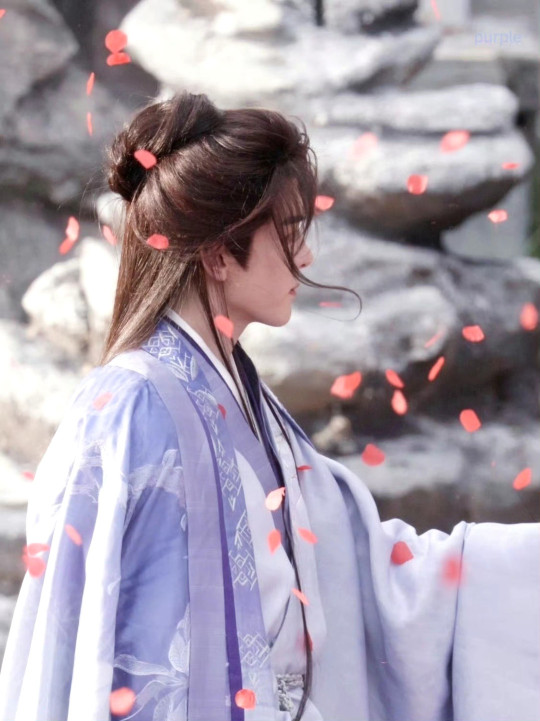

Pictures are of Zhi Liuhui from Legend of Rosy Clouds* but this is my visual for an older Fang Duobing, who wears his hair the way Li Lianhua does (did).
*who is bisexual in the Japanese canon, which I know will be censored in the cdrama, but I have faith in ZSX that he will be able to make him very bi regardless.
#mysterious lotus casebook#joseph zeng#zeng shunxi#fang duobing#he's so beautiful#legend of rosy clouds#my little difang shipper heart imagines this is who DFS sees when he comes out of seclusion to fight the new number 1 martial artist#and yes they fight#and then they do other things with their swords#that means fucking#against every available surface#difang
156 notes
·
View notes
Text
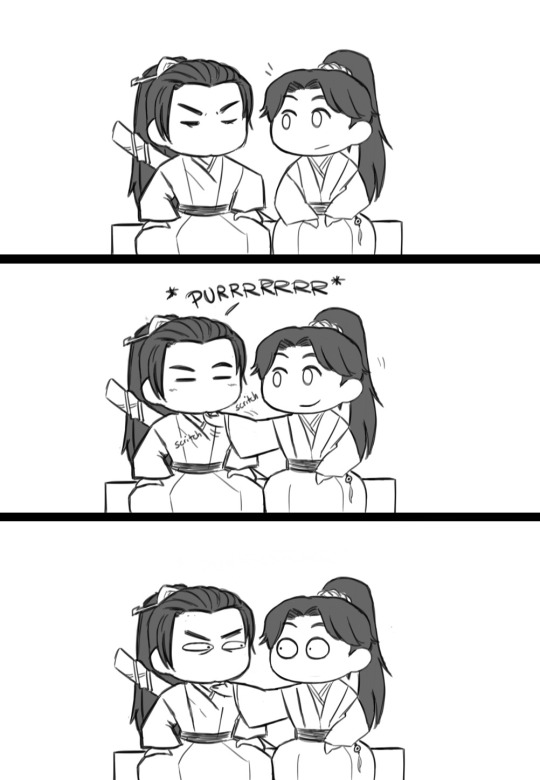
when you've accidentally tamed your a-fei
(difang is so important to me)
#difang#lhl#mysterious lotus casebook#fang duobing#di feisheng#bringing in some sillies#my doodles#di feisheng is debating whether to silence him while he still can#but of course he wont#he's the house's big cat now
373 notes
·
View notes
Text
Liansanjiao is so wild. One of them is a dom and also a pillow princess. Another one is a brat tamer and a submissive. The other one is a service top and a brat. They're all asexual. They're all horny all the time. They're all aromantic. They're all battle-sexual. They're all dating. They're all fighting. They're all in a qpr. They're all friends. They're all oh whoops you looked away for one moment now they're taking down the jianghu and they're going to remake it. Oh nevermind they're leaving.
#post partly inspired by the smut fic I just finished#I love them SO much#The dynamics are a little obvious but I left them blank because they could work for any of them#mysterious lotus casebook#lian hua lou#di feisheng#li lianhua#mlc#fang duobing#liansanjiao#difang#feihua#fanghua#difanghua#li xiangyi#The dynamics all connect. Do you see the vision
119 notes
·
View notes
Text
Underrated difang moment: In ep 39 when a visibly upset Fang Duobing leaves by himself after Shan Gudao and the Nanyin forces are defeated, and Di Feisheng not only notices, but also asks Li Lianhua why he isn't going to check on Fang Duobing. There's just so much in that one single moment. The fact Di Feisheng is paying attention, that's he's clearly concerned about how Fang Duobing is doing and has no hesitation in showing it, undisguised. The way he still doesn't go check on Fang Duobing himself. The simple acceptance of the fact that if there's anyone who should go after him, who may be able to comfort him at this time, it's Li Lianhua. He takes Li Lianhua’s word for it and gives Fang Duobing the space he needs even though he stays visibly concerned.
It's a small moment. It even shows how, despite having grown from their initial meeting, Di Feisheng and Fang Duobing still have some ways to go before understanding each other. But it's striking because so far, Di Feisheng has barely shown this sort of concern for anyone. Of course, he's had eyes only for Li Xiangyi for the most part, but even with him Di Feisheng doesn't state his worry like this! Cannot help but think about what shape this concern may take without Li Lianhua as an in-between, while they both grieve him. No wonder postcanon difang makes me want to chew on walls
82 notes
·
View notes
Text
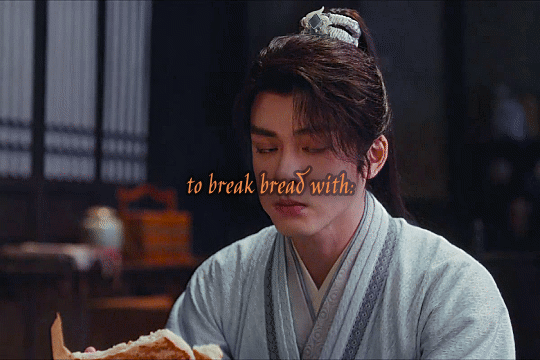

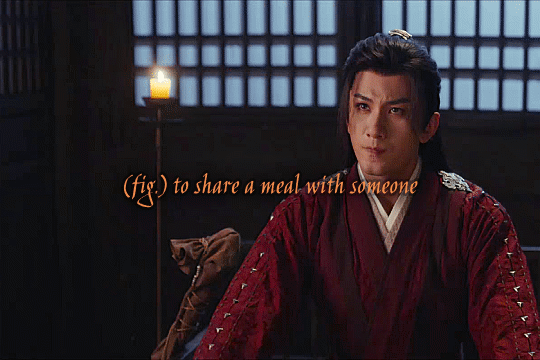
He's not that bad at heart.
121 notes
·
View notes
Text
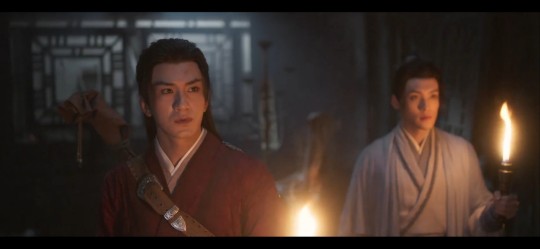



ok difang

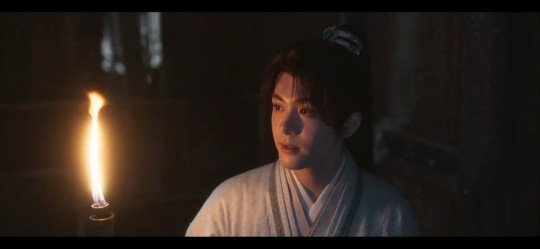
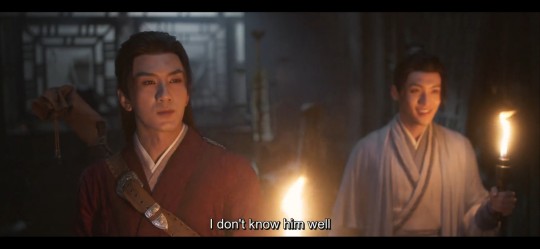

yes u do 🫶
bonus puppie

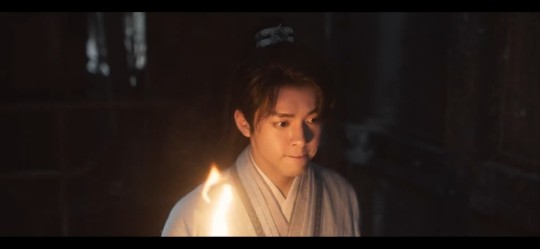
#mysterious lotus casebook#i am very drunk and fdb is very pupppie#difanghua is so important 2 me. look and difang is 2 parts of that 🫶#difang#YES I DID WRITW THE WEONG SHIP THE FIRST TIME I AM DRUNK#cdrama
91 notes
·
View notes
Text
hey anyone ever think about how the first time fang duobing meets di feisheng AS di feisheng (not a-fei) is in a cloud of swirling pink petals? just me? okay
#mysterious lotus casebook#fang duobing#di feisheng#difang#granted they're also trying to beat each other up but that's just difang daily#very romantic with the petals nods nods
63 notes
·
View notes
Text
difang is about a lot of aching things like grief, and unlikely meetings, and opposites that by rights shouldn't fit together but they will with enough time (time each of them is willing to give to the other). but potentially first if not foremost. it is about a bratty shaoye being railed within an inch of his life AND about the villain of the jianghu getting topped by a twink twelve years his junior. hope this helps <3
130 notes
·
View notes
Text
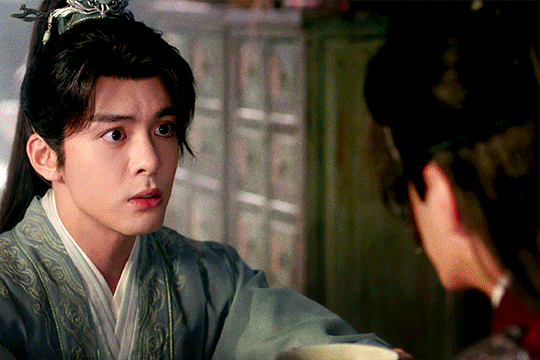
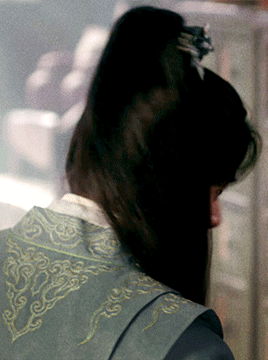
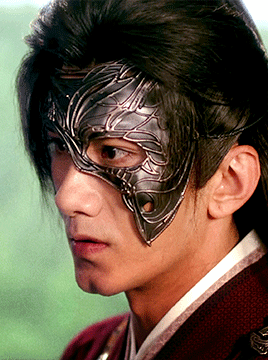



莲花楼 Mysterious Lotus Casebook EP. 21
#莲花楼#mysterious lotus casebook#asiandramasource#dailyasiandramas#cdramasource#asiandramanet#cdramagifs#cdramanet#gifshistorical#cdrama#cheng yi#xiao shun yao#joseph zeng#difang#difanghua#lhlgifs#jielin's edits#my posts#dfh#still havent cracked THAT dihua gifset so i'm moving on to other sets first 🤧#yes this is a difang-centric set. and kinda difanghua essentially#picking up difang scraps to feed myself/everyone </3#ah fei's faces in this make me so 🥺🥺🥺😭😭😭🥰🥰🥰 my beloveddddddd#the last one even has the :3 energy#also how he didn't push the bowl away just bc fdb offered meds to him but that he SPILLED the meds on him. you know(?)#i loveeee how patient and level-headed llh is with them wrecking havoc most of the time even though he did nearly lose it the first time#he's telling each of them hey actually the other person means well? i'm 🥺🥺 这家没他早散了😩
192 notes
·
View notes
Text
WIP Wednesday (Huli Jing Edition)
It's Wednesday again, so here's some comfort for a change: an excerpt where Huli Jing helps ground Di Feisheng--thanks to Xiaobao). (You can find earlier excerpts here.)
Swallowing back a groan, Di Feisheng forced himself upright again and braced himself for the sound of chatter.
The dog whined by the bedside instead.
He dragged his eyes open and looked around.
No overeager puppy in sight. Just Huli Jing.
Huh.
Xiaob–
–Xiangyi’s Xiaobao was actually giving him space. Peace and quiet–
Huli Jing wagged her tail at him expectantly.
–And also a dog.
It was a good compromise the brat had come up with: Di Feisheng had needed a break from him, so he’d sent in the quieter, tamer surrogate. And that way, Xiangyi would get comfort from Huli Jing, even in his sleep.
He huffed a laugh. It looked like even human pups could learn new tricks.
At least his hand was responding to his commands now, since he couldn’t even manage a click of his tongue in his current state.
He patted the bed at his feet, then let himself slump back against the wall, eyes closed.
The bed shifted as Huli Jing hopped up.
He waited for Huli Jing to turn in a circle before lying down by Xiangyi’s feet.
There was a pause.
The blanket rustled under the weight of paws, but not by Xiangyi. The rustles were getting closer. And closer.
Maybe she was going to rest her head on Xiangyi’s chest. He’d heard dogs did that sometimes.
A wet nose sniffed at his hand.
What the–He opened his eyes. Huli Jing gazed back at him, her head tilted slightly.
No treats here, he thought, and turned his empty palm up to show her.
She licked it.
That’s not–He shook his head, wiped his palm on his outer robe, and scritched her several times behind the ears. There, he thought, patting her on the back and resting his hand on his lap again. I’ve said hello. Now go to Xiangyi. He needs you more.
She whined, lay her front legs on his lap, and nuzzled his hand, her tail wagging.
Insistent little thing, aren’t you? He rolled his eyes, a small smile pulling at the corners of his lips. Fine, he thought at last, scratching her under her chin. But only this hand. I’m not letting go of Xiangyi.
She nuzzled into his hand again and then lay her head on his leg. He huffed out an amused breath. Compromise accepted, then.
#mysterious lotus casebook#mlc fic#my fic#WIP Wednesday#lianhualou#huli jing#Di Feisheng#Fang Duobing#Difang#difanghua#in which DFS will accept help from exactly 1 dog and very reluctantly at that#while Xiaobao is vibrating from stress outside from not being able to do anything other than send Huli Jing in#in other news: Xiaobao needs a hug#Thanks to momosandlemondsoda for suggesting this as this week's excerpt!
34 notes
·
View notes
Text
Chi deviating because I'm pretty sure those are their hands; they're both holding the camera for each other in these shots
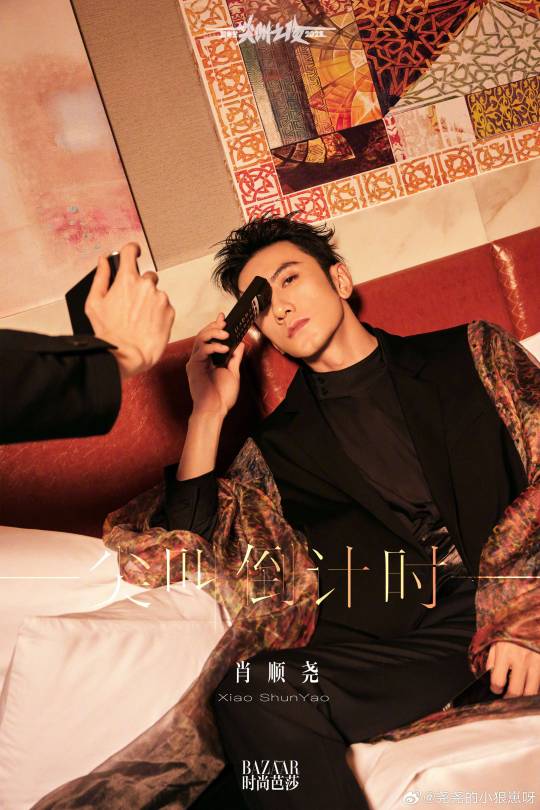

#difang modern au? yes?#difang#xiao shunyao#mysterious lotus casebook cast#mysterious lotus casebook#harpers bazaar#photoshoot#iqiyi scream night#my royal ramblings#zeng shunxi#sxwb
60 notes
·
View notes
Text
If DiHua's romance can be summarised by the Chinese idiom 刻骨铭心, in that they both mark each other down to the bones and change the other forever, then DiFang falling for each other can be represented as 铁树开花 (lit. "the iron tree blooms"), a once-in-a-lifetime event, as rare as the sago palm blooming in the temperate climate of China, truly a sight to behold.
#mysterious lotus casebook#difang#not ragging on DiHua of course#every ship has its beauty#can't think of an idiom for FangHua yet though#what do you guys think?#my rambles
33 notes
·
View notes
Text
Li Lianhua isn't so much haunted or loved by the narrative as he IS the narrative. He's the young hero he's the cyptic mentor he's the disappearing lover. The story revolves around his life until it doesn't. At the end we're left with the same question that Fang Duobing and Di Feisheng have to ask: what happens to the rest of the story when the narrative is gone?
#what else can I say here#his legend lives on in people's minds the same way a good story lives on#yet. his life is gone#perhaps he is dead. perhaps he is alive. what matters is that we will never know#what happens to dfs and fdb when their moon (not their sun. the argument could be made that he is but he's their moon) falls out of the sky#lian hua lou#mysterious lotus casebook#mlc#di feisheng#li lianhua#fang duobing#difang#fanghua#feihua#difanghua#li xiangyi#mlc brainrot is real
118 notes
·
View notes